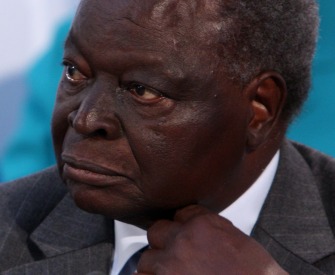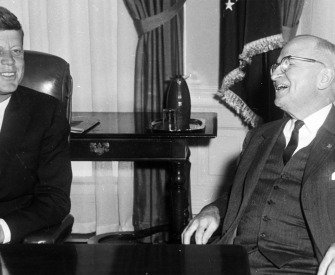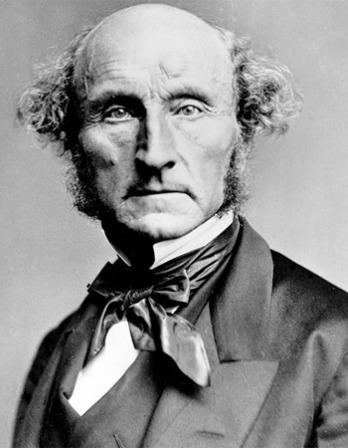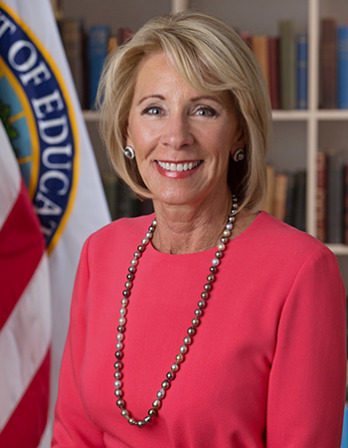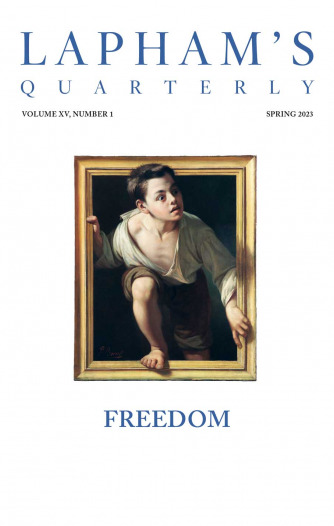If you read somebody’s diary, you get what you deserve.
—David Sedaris, 2004Enemy of the State
The government vs. Dr. King.
Frederick Schwarz: The efforts to discredit Dr. Martin Luther King range from political people to foundations to universities. A particular university was selected as a target because it was thought unseemly that, since it had once granted an honorary degree to the director of the FBI, for it to grant one to Dr. King. The FBI sought to prevent the pope from meeting with Dr. King. It intervened with a cardinal.
Chairman: To prevent the pope from meeting with Dr. King?
Schwarz: Yes; the pope. And when the pope, despite that effort, did meet with Dr. King, the FBI documents record the adverb astounding.
Chairman: It must have been Pope John, was it?
Schwarz: It was in 1964. Someone has got to help me on that. Who was the pope? Pope Paul. But in any event, that effort did not work. The paranoia, the belief that American citizens could not deal, themselves, with Dr. King is indicated by this story. At one point Governor Rockefeller was planning a trip to Latin America and the bureau felt that it had to approach Governor Rockefeller so he could be—he was planning to see Dr. King before going—so that he could be warned of what a great danger Dr. King was. This effort went on and on and on. Each time he was doing something important there was an effort to discredit him. Each person he met who the bureau felt could give further credit, further recognition to Dr. King, an effort was made to stop that from happening. The bureau went so far as to mail an anonymous letter to Dr. King and his wife shortly before he was awarded the Nobel Peace Prize, and it finishes with this suggestion: “King, there is only one thing left for you to do. You know what it is. You have just thirty-four days in which to do it. This exact number has been selected for a specific reason. It has definite practical significance.” It was thirty-four days before the award. “You are done.”

Mata Hari, 1905. Photograph by Reutlinger Studio. © Bibliotheque Nationale, Paris / Archives Charmet / Bridgeman Images.
Senator Walter Mondale: That was taken by Dr. King to mean a suggestion for suicide, was it not?
Schwarz: That is our understanding, Senator.
Chairman: Who wrote the letter?
Schwarz: That is a matter of dispute. It was found in the files of Mr. Sullivan who was the assistant director of the FBI and was heavily involved in these programs. He claims that it is a plant in his files and that someone else in the bureau, in fact, wrote the document. The document that was found is a draft of the letter, the anonymous letter that was actually sent.
Chairman: Is there any dispute that the letter did in fact come from the FBI?
Schwarz: We have heard no dispute of that.
Curtis Smothers: One thing that is very clear as we examine the King information is that the FBI is not only presumed to know an awful lot about the movement which Dr. King headed, but that many of its fumbling efforts, many of its failures to convince people that Dr. King should be discredited, were born out of the ignorance and, if you will, the very clear racism at large then in the bureau.
A particularly revealing aspect of the bureau’s approach to the question, even at a time when they were examining the so-called Negro question, is evidenced by the response to a memorandum that then Attorney General Kennedy wrote to Mr. Hoover. Mr. Kennedy wrote a memorandum asking Mr. Hoover how many Negro special agents he had. Mr. Hoover wrote back,“We do not catalogue people by race, creed, or color,” and now, reading from Mr. Sullivan’s transcript on the point, “It was assumed by Mr. Hoover that this would take care of Mr. Kennedy. Mr. Kennedy came back with another very nice letter, that’s a laudatory attitude, you are commended to have it, but I still want to know how many Negro special agents do you have. So we were in trouble. It so happened that during the war he had five Negro chauffeurs, so he automatically made them special agents. It did not matter whether they finished college or high school or grammar school or had a law degree. So now we wrote back and said we had five. Then Mr. Kennedy came back and said this was atrocious.” At the time, according to Mr. Sullivan, the FBI had 5,500 special agents. “Out of that number, and you only have five Negro agents.” Mr. Sullivan again: “Of course, we did not say in that memorandum that none of them conducted investigations; they were just drivers.”
This is 1961. Is it any wonder that the FBI was later presumptuous enough to feel that it could determine the next new national Negro leader?
About This Text
From hearings before the Senate Select Committee to Study Governmental Operations with Respect to Intelligence Activities. Responding to allegations of national intelligence agencies engaging in illegal behavior, the committee (known informally as the Church Committee after its chairman, Idaho senator Frank Church) operated in 1975 and 1976. In the first public hearing, Church brandished a poison dart gun and claimed the CIA had violated a presidential order by maintaining stocks of shellfish toxin and cobra venom in a vault known as the Cave of Bugs.
